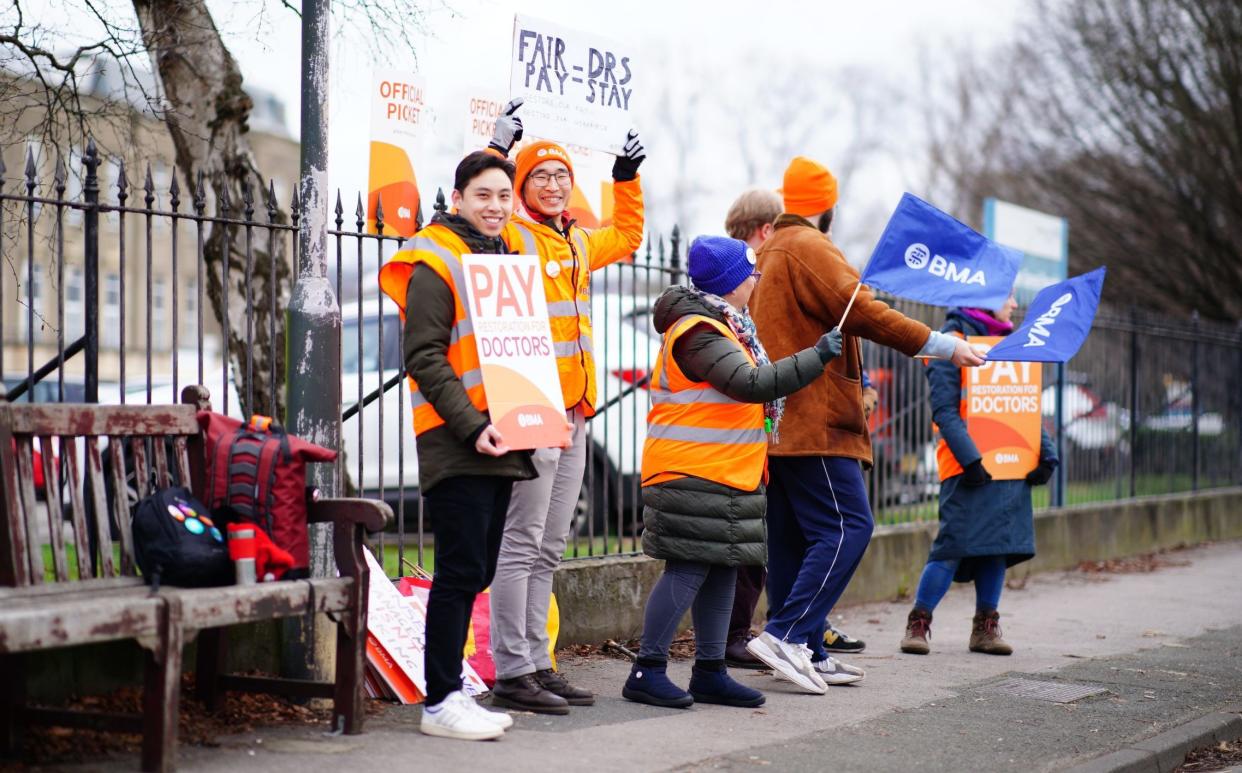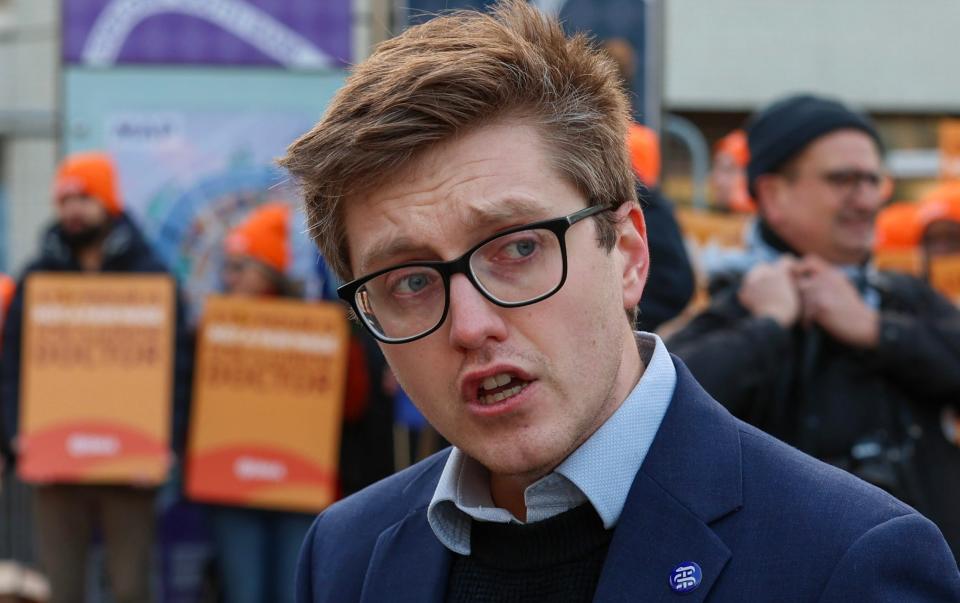Junior doctors’ strikes threaten to cancel out NHS waiting list progress

Junior doctors’ strikes could cancel out the progress made on reducing the NHS waiting list, data suggest.
The NHS posted a near record fall in the overall waiting list of 100,000 to 7.6 million in November, when there were no doctors’ strikes.
It marked the largest decline since 2010, excluding three months at the start of the pandemic, and was the second consecutive month that the waiting list has fallen, dropping from a high of almost 7.8 million in September.
Victoria Atkins, the Health Secretary, said it was a sign of what staff could do “when they don’t have to contend with industrial action”.
November was the first month without strike action in more than a year, and the overall waiting list fell by 95,598. It was the highest decrease, excluding the pandemic, since December 2010, when the list stood at under 2.5 million.
However, more than 200,000 appointments and operations were cancelled during nine days of strikes by junior doctors within the past month.
Around 114,000 of these occurred in the six-day walkout at the start of this year, which NHS leaders said had caused “unprecedented disruption”, with the true cost “likely to be even higher”. A further 88,000 people had appointments delayed in the three days leading up to Christmas.
Ms Atkins said: “This shows the progress our fantastic NHS staff can make towards bringing waiting lists down when they don’t have to contend with industrial action.
“We want to put an end to damaging strikes once and for all, and if the BMA [British Medical Association] junior doctors’ committee can demonstrate they have reasonable expectations, I will still sit down with them.”
The number of people waiting for appointments fell by 60,000 to 6.39 million, the NHS said, with some patients waiting for multiple appointments and procedures.
NHS figures showed staff had treated a record number of patients in a single month, with 1.6 million appointments completed.
Prof Sir Stephen Powis, the NHS national medical director, said: “We have experienced the toughest possible start to 2024 with the longest set of strikes in our 75-year history, but we remain focused on doing all we can to make progress on the Covid backlog that has inevitably built up over the pandemic.
“While we know we have a long way to go, caring for over 1.6 million people in a single month is such important progress and makes such a huge difference for those patients who have been waiting for an appointment or operation.”
The BMA has been asking for a 35 per cent pay rise and said it is “ready to end this dispute once and for all”.
Dr Rob Laurenson, the co-chairman of the junior doctors’ committee, said: “Victoria Atkins on Monday evening said she’s keen to deliver a ‘fair and reasonable’ outcome. We are ready to talk about that fair outcome at her earliest convenience.”

A&E waits were the second highest on record last month, with more than 666,000 of the 2.18 million patients who attended emergency departments having to wait over four hours. This was only higher in December 2022 as the NHS struggled with a post-pandemic surge in demand.
Seven hospital trusts saw more than half of their A&E patients wait for more than four hours last month. The NHS “interim” target is for 75 per cent of patients to be seen within four hours, while the national standard of 95 per cent has not been met since July 2015.
Meanwhile, urgent ambulance callouts, including for heart attack and stroke patients, took more than 45 minutes on average in December, the worst month last year, with the figure up from 38 minutes 30 seconds in November. However, waits for an urgent category two ambulance were half what they had been in December 2022.
Ambulance handover delays were also up last week, with University Hospitals Plymouth NHS Trust continuing to perform the worst of any trust, with ambulances delayed by four hours and eight minutes on average.
The latest weekly figures also showed that the number of patients in hospital with flu had risen for the sixth consecutive week, suggesting the peak is still to come.
Last week there were 1,548 people in hospital with flu each day on average, up a fifth on the week before and almost two thirds on the 942 patients a fortnight earlier. There were also more than 4,200 patients in hospital with Covid.

 Yahoo News
Yahoo News 
